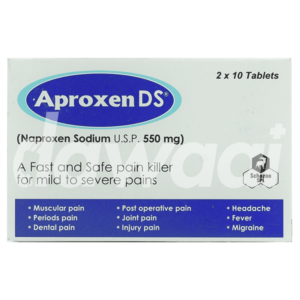Introduction
How To Use
- Take Empagliflozin precisely as directed by your doctor.
- Your dose will most likely alter over time depending on your treatment response and clinical state.
- Do not alter the duration or dose of Empagliflozin without first consulting your doctor.
- Swallow Empagliflozin with water.
- Do not crush, break or chew the tablet.
Expert Advice
- You should keep exercising, eating a balanced diet, and taking your other diabetes medicines in addition to Empagliflozin.
- Keep Empagliflozin at room temperature, away from excess heat, moisture and direct sunlight.
- Keep Empagliflozin out of children’s and pets’ reach.
- Do not use Empagliflozin past its expiry date.
Primary Uses
Indications
- Empagliflozin is used in combination with a proper exercise and diet regimen to help type 2 diabetic patients lower their blood glucose levels.
- Empagliflozin is a medicine that is used to reduce the danger of cardiovascular death among adults having type 2 diabetes.
Side Effects
- Bladder discomfort.
- Cloudy or bloody urine.
- Painful or difficult urination.
- Pain in the lower back
- Blurred vision.
- Rapid heartbeat.
- Confusion
- Headache
- Unusual exhaustion or weakness.
- Sweating
- Vomiting and nausea.
Warnings
 Pregnancy
Pregnancy
Empagliflozin should only be used in pregnancy if absolutely necessary. Pregnant females should consult their doctors regarding the benefits and risks of Empagliflozin.
 Lactation
Lactation
Empagliflozin should only be used during lactation if absolutely necessary. Lactating females should consult their doctors regarding the benefits and risks of Empagliflozin. Based on their clinical state, the doctor may advise lactating females to stop breastfeeding or stop taking the medicine.
 Driving
Driving
As a side effect, Empagliflozin may cause dizziness and sleepiness. Avoid driving vehicles until you have a clear idea of how Empagliflozin affects you.
 Liver
Liver
Patients with liver diseases should consult their doctors before using Empagliflozin.
 Kidney
Kidney
Because of the increased potential of severe side effects, Empagliflozin should be used cautiously in patients having kidney disease. While taking this medicine, kidney function tests must be closely monitored. In some circumstances, depending on the clinical state, appropriate dose modifications or substitution with an appropriate replacement may be necessary.
 Alcohol
Alcohol
Alcohol consumption is contraindicated during Empagliflozin treatment since it increases the risk of both high and low blood sugar levels.
 Precautions
Precautions
If you are hypersensitive to Empagliflozin or have other allergies, inform your doctor before taking it. Inactive components may be included in this medicine, causing allergies or other issues. For further information, consult your doctor. Inform your doctor about your medical history, especially if you have kidney problems (such as dialysis), liver disorders, alcohol use/abuse, dehydration, low blood pressure, high blood cholesterol, or a history of vaginal or penile yeast infections. If you are diabetic, it may be difficult to control blood sugar levels when your body is under stress (like due to infection, injury, fever or surgery). Additionally, if you are not eating enough or are unable to eat owing to these diseases or any disease, you may experience an increased ketone level while taking Empagliflozin. Consult your doctor since you may need to adjust your treatment regimen, medicines, or blood glucose or ketone monitoring as a result of this. Inform your doctor or dentist regarding all the medicines you consume before surgery (including prescription and nonprescription and herbal medicines). Empagliflozin’s negative effects, particularly dehydration, kidney issues, and lightheadedness, may be more severe in older persons (usually while standing).
Contraindications
- Empagliflozin is not suggested for patients who have a known hypersensitivity to Empagliflozin or any of the inactive components in it.
- Because of the higher risk of aggravating the patient’s condition, Empagliflozin is not suggested for patients having significant impairment of renal function.
FAQS
How does Empagliflozin work?
Empagliflozin decreases glucose levels in blood by reducing reabsorption of glucose from the kidneys.
When is the ideal time to take Empagliflozin during the day?
Empagliflozin is usually taken in the morning. It is possible to take this medicine either with food or without food. It should be taken every day at the same time.
What family of drugs does this medicine belong to?
Metformin belongs to a class of drugs known as biguanides. It is used to improve insulin activity, and control weight in diabetic patients. It is also known to regulate menstrual cycles (periods) and is used in the treatment of PCOs (Poly Cystic Ovarian Disease.)
Does this medicine contain hormones, or insulin?
No, this drug does not contain hormones, or insulin,. It enhances the effect of insulin, which helps patients with diabetes or PCOs, since their bodies tend to develop a resistance to the actions of insulin.
Can this drug be used with thyroid medications, and steroids?
Though there is no dangerous drug interaction, an adjustment in doses of both anti thyroid drugs, and steroids (eg: prednisone) may be required. It should be noted that patients taking steroids sometimes develop diabetes as a side effect. Please consult your physician, and discuss all the medicines you are taking, including their doses.
What is lactic acidosis and does this medication cause it?
Lactic acidosis is a very rare, and potentially fatal side effect of this medication. It occurs when there is an excessive buildup of lactic acid in the body. It may occur in patients who have overdosed. Symptoms include stomach problems, dizziness, breathing difficulty, muscle aches, irregular heartbeat, etc. Patients who experience these symptoms should go to a doctor immediately.
How long should I use this medicine for?
Please use this medicine for the time that has been prescribed, and in the dose prescribed by your physician. Using it for longer than prescribed can cause side effects such as Vitamin B12 deficiency.
Can this medicine cause low blood sugar?
Low blood sugar is rare with Metformin, but it is a possible side effect, especially if you are taking other anti-diabetic drugs. Please maintain regularity in meals, dosage, and exercise to maintain blood sugar levels, and continue monitoring sugar levels. Also carry sugar or a sugary drink in case you feel dizzy, or develop any other sign of low blood sugar.
What do I do if I miss a dose?
You can take the missed dose as soon as you remember. If you remember when it is almost time for your next dose, then skip the missed dose entirely. Do not double your dose to catch up for missed doses.
What will happen if I skip a meal?
It is important to maintain regularity in meals, and exercise. Low blood sugar is rare, but may occur if you are taking other anti-diabetic medication.
Will this medicine make me loose or gain weight?
Weight gain is unlikely with this medicine, however, it does cause weight loss. This is because it improves the actions of insulin, and decreases hunger. Please take note that this drug is not a medicine which treats weight loss, and should only be used if prescribed by your physician. This medicine may, however, cause bloating. It is best taken after meals to avoid this side effect.
Can this medication cause any Vitamin deficiency or anemia?
This medication can result in a vitamin B12 deficiency after being used for a long time, and this can cause anemia. Please discuss with your doctor if you are already anemic, or if you start experiencing symptoms such as paleness, weakness, lethargy, etc.
Is it safe to use in patients with liver disease?
In patients who have fatty liver, and hepatitis C related liver disease, it is safe and is recommended. However, it is discouraged in patients who have liver cirrhosis, due to its association with lactic acidosis.
Disclaimer
Dawaai’s intention is to make sure that it’s consumers get information that is accurate, reviewed by an expert and error-free. However, the information mentioned here should not be used as a replacement for the advice of a qualified physician. The information given here is for informational purposes only, which may not cover all possible precautions, side effects, contraindications or drug interactions. Consult your doctor and discuss your queries related to any medicine or disease.






Reviews
There are no reviews yet.